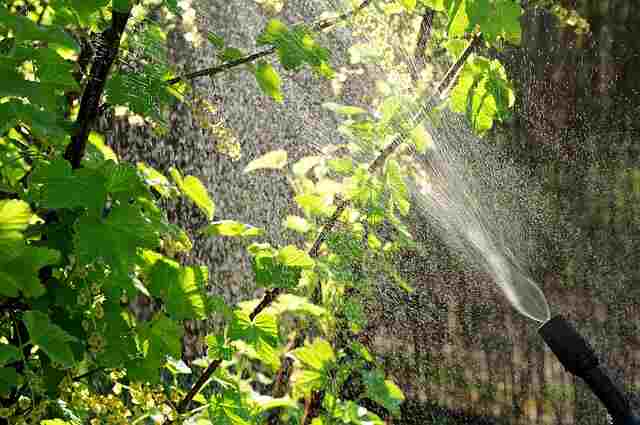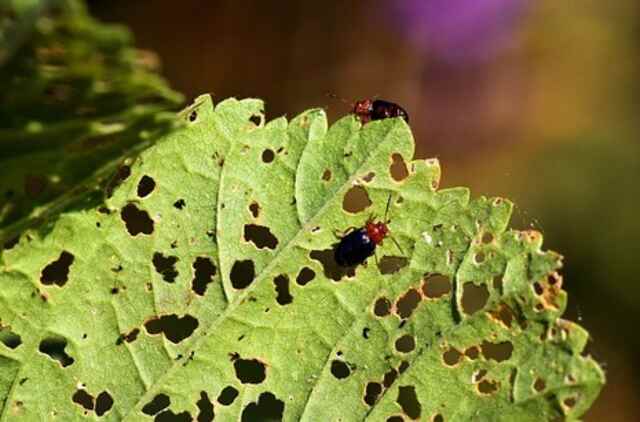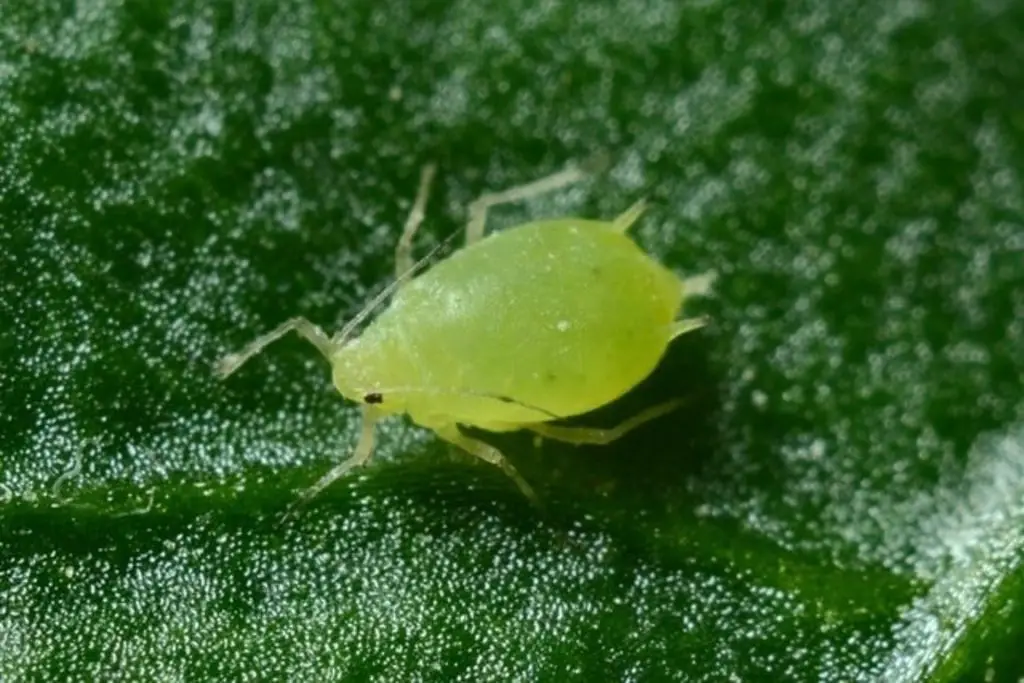The Best Way To Eliminate Herb Plant Pests (Best Tips!)
Keeping herb plants healthy can be a challenge, especially when it comes to pest infestations. The best way to eliminate herb plant pests is to prevent them from infesting your plants in the first place. By taking proper care and maintenance of your herb plants, you can help keep them healthy and pest-free.
Table of Contents
- 1 Best Way To Eliminate Herb Plant Pests
- 2 Frequently Asked Questions
- 2.1 Can I use chemical pesticides to eliminate herb plant pests?
- 2.2 How often should I prune my herb plants?
- 2.3 How do I know if my herb plants have pests?
- 2.4 Can companion planting really help repel pests from my herb plants?
- 2.5 How do I know if I am overwatering my herb plants?
- 2.6 Can essential oils harm my herb plants?
- 3 Author
Best Way To Eliminate Herb Plant Pests
Prevention Is Key – How To Keep Your Herb Plants Healthy
Good Soil
Using high-quality soil with good drainage and plenty of organic matter provides a healthy growing environment for your herb plants. This environment helps your herb plants grow strong, making them less susceptible to pest infestations. When plants are weak or stressed, they become more vulnerable to pests.
Proper Watering
Watering your herb plants is critical to their survival. However, overwatering can lead to root rot and other problems that can make your plants more susceptible to pests. To prevent this, you should water your plants regularly, but avoid overwatering. A general rule of thumb is to water when the top inch of soil feels dry.
Pruning
Regular pruning of your herb plants can help keep them healthy and prevent pest infestations. Prune away any dead or damaged leaves or stems to prevent the spread of disease. Remove any weeds that may be growing around your herb plants. Weeds can harbor pests, and they compete with your plants for nutrients, water, and sunlight.
Natural and Chemical Repellents
Using natural repellents or chemical repellents can help prevent pest infestations in your herb plants. Natural repellents are a safer alternative to chemical repellents. They do not harm beneficial insects and are less toxic to humans and pets.

Natural Methods To Eliminate Herb Plant Pests
If prevention methods fail, and your herb plants become infested with pests, there are several natural methods you can use to eliminate them. Here are some of the most effective natural methods:
Neem Oil
Neem oil is a naturally occurring insecticide that is derived from the seeds of the neem tree. It is effective against a wide range of pests and can be used on a variety of plants, including herb plants. It works by disrupting the insect’s hormonal system, making it harder for them to feed and breed.
To apply neem oil on your plants, you can dilute it by mixing it with water and then use a sprayer to spray the mixture onto your plants. Reapply it every 7-14 days until the pests are gone.
Garlic Spray
Garlic spray is a natural repellent that can help keep pests away from your herb plants. To make garlic spray, crush several cloves of garlic and mix them with water. Let the mixture sit for a few hours, then strain out the garlic and spray the liquid on your plants. Garlic spray works by making your plants less attractive to pests.
Ladybugs
Ladybugs are a natural predator of many common herb plant pests, including aphids and spider mites. You have the option to buy ladybugs online or from a nearby garden center. Release them onto your plants in the early evening when the temperature is cooler. Ladybugs will begin to eat pests immediately.
Companion Planting
Companion planting involves planting certain plants together to benefit each other. For example, planting marigolds with your herb plants can help repel pests, as marigolds give off a scent that many pests find unpleasant.
Manual Removal
Sometimes the best way to eliminate herb plant pests is by manually removing them. This can be done by using a strong stream of water to knock pests off of your plants, or by picking them off by hand. Be sure to dispose of the pests properly to prevent them from coming back.
Essential Oils
Essential oils, such as peppermint, clove, and thyme, can be effective at repelling pests from your herb plants. These oils are easy to use and can be mixed with water and sprayed on your plants. They work by masking the scents that attract pests to your plants, making them less attractive to pests.
Peppermint oil is especially effective at repelling ants, aphids, and beetles. Clove oil is known to repel ants, aphids, and whiteflies. Thyme oil is effective at repelling spider mites, whiteflies, and aphids. These oils can also be used in combination with other natural methods to maximize their effectiveness.
Conclusion
In conclusion, the best way to eliminate herb plant pests is to prevent them from infesting your plants in the first place. Good soil, proper watering, pruning, and using natural or chemical repellents are all effective prevention methods.
However, if prevention fails, natural methods such as neem oil, garlic spray, ladybugs, companion planting, manual removal, and essential oils can be used to eliminate herb plant pests. By using these methods, you can keep your herb plants healthy and pest-free.
| Pest | Problems Caused | Natural Methods for Elimination |
|---|---|---|
| Aphids | Deformity, stunting, and discoloration of leaves | Neem oil, garlic spray, essential oils (peppermint, clove, thyme) |
| Spider mites | Discoloration and webbing on leaves | Neem oil, ladybugs, essential oils (thyme) |
| Whiteflies | Sticky residue on leaves, yellowing and wilting of leaves | Neem oil, essential oils (clove), companion planting (marigolds, nasturtiums) |
| Mealybugs | White, cottony residue on leaves, stunted growth | Manual removal, alcohol spray, neem oil |
| Thrips | Deformity and discoloration of leaves, reduced growth | Neem oil, ladybugs, essential oils (peppermint) |
| Caterpillars | Holes in leaves, reduced growth and yield | Manual removal, companion planting (dill, fennel), BT spray |
| Slugs | Holes in leaves, slimy trails on foliage | Handpicking, copper tape or wire barriers, diatomaceous earth |
| Snails | Holes in leaves, slimy trails on foliage | Handpicking, copper tape or wire barriers, diatomaceous earth |
| Fungus gnats | Weak, yellowing plants, root damage | Sticky traps, hydrogen peroxide in water, insecticidal soap |
| Scale insects | Stunted growth, sticky residue on leaves, black mold | Neem oil, rubbing alcohol, essential oils (peppermint) |
Frequently Asked Questions
Can I use chemical pesticides to eliminate herb plant pests?
While chemical pesticides are an option for eliminating herb plant pests, they come with several drawbacks. Firstly, they can harm not only the pests but also beneficial insects such as bees and ladybugs, which can disrupt the ecosystem of your garden.
Additionally, chemical pesticides can leave harmful residues on your herbs, making them unsafe for consumption. Therefore, it’s recommended to exhaust all natural methods before resorting to chemical pesticides.
If you do decide to use them, be sure to carefully read and follow the instructions on the label, and take proper precautions such as wearing protective gear and avoiding spraying on windy days.
How often should I prune my herb plants?
The frequency of pruning your herb plants will depend on the specific type of herb you’re growing and how quickly it grows. In general, most herbs benefit from regular pruning to promote bushier growth and prevent legginess.
For herbs that are used for their leaves, such as basil, mint, and cilantro, it’s recommended to pinch off the top few inches of the plant every few weeks to encourage new growth and prevent it from flowering.
Herbs that are grown for their woody stems, such as rosemary and thyme, can be pruned more heavily once or twice a year to remove any dead or woody growth.
It’s also important to pay attention to the growth habits of your specific herb plant and adjust your pruning accordingly.
For example, some herbs such as oregano and sage can become woody and overgrown over time, and may require more frequent and severe pruning to keep them healthy and productive.
How do I know if my herb plants have pests?
It’s important to regularly inspect your herb plants for signs of pests, as early detection can help prevent the infestation from spreading and causing more damage to your plants. Here are some typical indicators to be mindful of:
- Visible pests: Some pests, such as aphids and spider mites, can be seen on the leaves and stems of your herb plants. Look for small, crawling insects, as well as any webs or silk that may be present.
- Damage to leaves: Pests can cause a variety of damage to your herb plant leaves, including discoloration, spotting, and curling. Look for any unusual patterns or colors on the leaves, as well as any holes or bite marks.
- Sticky residue: Some pests, such as whiteflies, excrete a sticky substance called honeydew that can attract ants and other insects. Look for any sticky residue on the leaves and stems of your herb plants.
- Wilting or stunted growth: Pests can also cause damage to the roots of your herb plants, which can lead to wilting or stunted growth. If you notice that your herb plants are not growing as quickly as they should, or are showing signs of stress, it could be a sign of a pest infestation.
If you suspect that your herb plants have pests, it’s important to take action as soon as possible to prevent the infestation from spreading. Try some of the natural methods we’ve discussed, or if necessary, consider using a targeted pesticide.

Can companion planting really help repel pests from my herb plants?
Yes, companion planting can be an effective way to repel pests or bugs from your herb plants. Companion planting involves planting certain plants together that have a mutually beneficial relationship, such as repelling pests or improving soil quality.
For example, planting marigolds near your herb plants can help repel aphids, spider mites, and other pests. Marigolds contain a natural compound called alpha-terthienyl that is toxic to many pests, making them an effective natural repellent.
Similarly, planting garlic or chives near your herb plants can help repel aphids, flea beetles, and other pests. These plants contain natural compounds that deter pests and can help protect your herb plants from damage.
Companion planting can also help attract beneficial insects, such as ladybugs and lacewings, that prey on pest insects. Planting flowers such as daisies and yarrow near your herb plants can help attract these beneficial insects and create a more balanced ecosystem in your garden.
How do I know if I am overwatering my herb plants?
Overwatering is a common problem that can damage or kill herb plants. Here are some signs that you may be overwatering your herb plants:
- Yellowing leaves: If the leaves of your herb plants are turning yellow, it may be a sign that they are getting too much water. The roots of the plant can become waterlogged and begin to rot, which can cause the leaves to turn yellow.
- Wilting leaves: While it may seem counterintuitive, overwatering can also cause the leaves of herb plants to wilt. This is because the roots become saturated with water, making it difficult for the plant to absorb oxygen.
- Mold or fungus: Overwatered plants can also develop mold or fungus on the leaves or soil. This is because the excess moisture creates a damp environment that is ideal for these types of growths.
- Slow growth: If your herb plants are not growing as quickly as you would expect, it could be a sign of overwatering. This is because the roots may be struggling to absorb nutrients from the soil due to the excess moisture.
To avoid overwatering your herb plants, it is important to check the moisture level of the soil before watering. To check whether you are giving your herb plants too much water, simply stick your finger about one inch deep into the soil.
If the soil feels dry at that depth, then it’s time to water your plants. If it feels moist or wet, wait a few more days before watering again. Additionally, make sure that the pot or container has drainage holes to allow excess water to escape.
Can essential oils harm my herb plants?
While essential oils can be an effective natural method for repelling pests from your herb plants, they can also potentially harm your plants if not used properly. Here are some things to keep in mind when using essential oils on your herb plants:
- Dilute the oil: Essential oils are highly concentrated and can be too strong for your plants if not diluted properly. Mix a few drops of essential oil with water or a carrier oil like olive oil or coconut oil before applying it to your plants.
- Test a small area first: Before using an essential oil on your entire plant, test it on a small area first to make sure that your plant does not have a negative reaction. Wait a few days to see if any damage or discoloration occurs.
- Use a small amount: When applying essential oils to your plants, use a small amount at a time. Overuse of essential oils can cause the leaves of your plants to wilt or burn.
- Avoid using on young plants: Essential oils can be harsh on young plants and can damage their delicate leaves. Wait until your plants are fully mature before using essential oils.
- Use the right oil: Not all essential oils are safe for use on plants. Make sure to research which oils are safe to use on your specific plant type before using them.
- In general, essential oils can be a safe and effective natural method for repelling pests from your herb plants, as long as they are used properly and in moderation.
Related Post: 21 Plants that are Natural Pesticides: The Ultimate Guide







